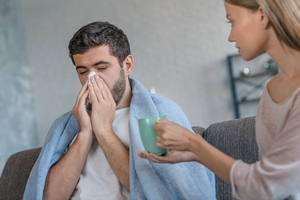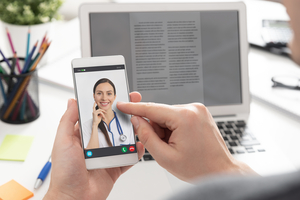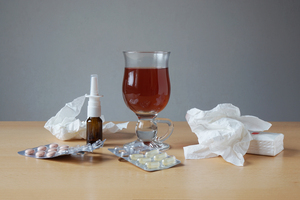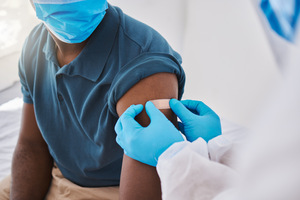COVID testing & Rapid testing near me in Princeton, TX
Own a clinic? Add your location.
Help patients book appointments with you on Solv. It's free!
20 instant-book locations
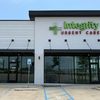
Integrity Urgent Care, Princeton
Integrity Urgent Care
PCR Test
Results in 1-5 days
Antigen Test
RapidResults in < 1 hour
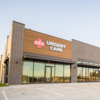
AFC Urgent Care, Allen
AFC Urgent Care
PCR Test
Time to results unknown
Antigen Test
RapidTime to results unknown

Urgent Care for Kids, McKinney
Urgent Care for Kids
PCR Test
Results in 1-3 days
Antigen Test
RapidResults in 15 min

Integrity Urgent Care, Anna
Integrity Urgent Care
PCR Test
Results in 1-5 days
Antigen Test
RapidResults in < 1 hour

NiteHawk Pediatric Urgent Care
NiteHawk Pediatric Urgent Care
Self-pay pricing
Clear self-pay prices
No more surprise bills. Solv is committed to making getting healthcare as easy as buying groceries at the store, including knowing the price of care upfront.
PCR Test
Results in 1-5 days
$175
Antigen Test
RapidResults in same day
$175

Nitehawk Pediatric Urgent Care, Telemed
Nitehawk Pediatric Urgent Care
COVID Test
Results in < 1 hour

Baylor Scott & White Urgent Care +, Plano
Baylor Scott & White Urgent Care +
PCR Test
Results in 1-3 days
Antigen Test
RapidResults in same day

Urgent Care for Kids, Plano
Urgent Care for Kids
PCR Test
Results in 1-3 days
Antigen Test
RapidResults in 15 min

Little Spurs Pediatric Urgent Care, Garland
Little Spurs Pediatric Urgent Care
Self-pay pricing
Clear self-pay prices
No more surprise bills. Solv is committed to making getting healthcare as easy as buying groceries at the store, including knowing the price of care upfront.
PCR Test
Results in 1-3 days
$175
Antigen Test
RapidResults in 15 min
$175

Integrity Urgent Care, Rowlett
Integrity Urgent Care
PCR Test
Results in 1-5 days
Antigen Test
RapidResults in < 1 hour

Baylor Scott & White Urgent Care +, Richardson
Baylor Scott & White Urgent Care +
PCR Test
Results in 1-3 days
Antigen Test
RapidResults in same day

Rockwall Rapid Care
Rockwall Rapid Care
Self-pay pricing
Clear self-pay prices
No more surprise bills. Solv is committed to making getting healthcare as easy as buying groceries at the store, including knowing the price of care upfront.
PCR Test
Results in < 1 hour
$150
Antigen Test
RapidResults in 15 min
$125

Urgent Care for Kids, Frisco
Urgent Care for Kids
PCR Test
Results in 1-3 days
Antigen Test
RapidResults in 15 min

Integrity Urgent Care, Greenville
Integrity Urgent Care
PCR Test
Results in 1-5 days
Antigen Test
RapidResults in < 1 hour
MedPrem Urgent Care
MedPrem Urgent Care
Self-pay pricing
Clear self-pay prices
No more surprise bills. Solv is committed to making getting healthcare as easy as buying groceries at the store, including knowing the price of care upfront.
PCR Test
RapidResults in same day
$180
Antigen Test
RapidResults in 15 min
$80

Little Spurs Pediatric Urgent Care, Casa View
Little Spurs Pediatric Urgent Care
Self-pay pricing
Clear self-pay prices
No more surprise bills. Solv is committed to making getting healthcare as easy as buying groceries at the store, including knowing the price of care upfront.
PCR Test
Results in 1-3 days
$175
Antigen Test
RapidResults in 15 min
$175

Just 4 Kids, Carrollton
Just 4 Kids
Self-pay pricing
Clear self-pay prices
No more surprise bills. Solv is committed to making getting healthcare as easy as buying groceries at the store, including knowing the price of care upfront.
Antigen Test
Time to results unknown
$25

CityDoc Urgent Care, Preston
CityDoc Urgent Care
Self-pay pricing
Clear self-pay prices
No more surprise bills. Solv is committed to making getting healthcare as easy as buying groceries at the store, including knowing the price of care upfront.
PCR Test
RapidResults in < 1 hour
$35
Antigen Test
RapidResults in 15 min

Baylor Scott & White Urgent Care +, Mockingbird
Baylor Scott & White Urgent Care +
PCR Test
Results in 1-3 days
Antigen Test
RapidResults in same day

Hybrid Health, Park Cities
Hybrid Health
PCR Test
Time to results unknown
Antigen Test
Time to results unknown
Own a clinic? Add your location.
Help patients book appointments with you on Solv. It's free!
Recent COVID-19 Testing Reviews (20)
Princeton COVID Testing & Rapid Testing
Types of COVID Tests
There are two types of coronavirus tests (COVID-19 tests) available, those that can test for a current infection (viral test) and those that can test for a past infection (antibody test).
Viral COVID testing can be done in a few different ways, the most common being nose swabs, but saliva tests are becoming more popular. Some tests are processed out on-site and can provide results in as little as 30 minutes. These are called rapid COVID tests. The majority of tests, on the other hand, are collected at the clinic on-site and then submitted to off-site labs for processing. Results can take up to 2-3 days to arrive.
Antibody testing looks for a past infection and may not reveal if you have an active COVID-19 infection because antibodies can take up to three weeks to form in your body. The presence of COVID antibodies may help to prevent you from becoming infected with the same virus again; but, because the clinical understanding of COVID-19 is still developing, it's unclear how long that protection will continue.
Who should get tested for current infection
The CDC currently defines four instances where COVID testing is recommended:
- If you are experiencing symptoms of COVID-19 including fever or chills, cough, shortness of breath or difficulty breathing, fatigue, muscle or body aches, headache, new loss of taste or smell, sore throat, congestion or runny nose, nausea or vomiting, or diarrhea.
- If you have been in close contact with someone with confirmed COVID-19. Close contact is defined as within 6 feet for a total of 15 minutes or more over a 24-hour period. If you have been vaccinated, or tested positive in the past 3 months and not experiencing symptoms, you do not need to be tested.
- If you are unvaccinated and participated in high-risk activities where distancing is not an option. This could include travel, large social or mass gatherings, crowded indoor settings, etc.
- If you have been referred to get a COVID test by your healthcare provider or local health department.
How is testing done for COVID-19?
Most COVID tests are collected by a nasal swab. A member of the medical team puts a swab inside your nose for a few seconds on each side to collect the sample. After that, the samples are packaged according to CDC guidelines and tested on-site or transported to a facility for testing. The lab will test samples for the presence of the coronavirus (SARS-CoV-2), which causes COVID infection and either your care provider or the lab will notify you with the results as soon as they are available.
PCR vs Antigen Testing
Viral COVID tests are available as molecular and antigen tests. The molecular test, also known as a polymerase chain reaction (PCR) test, usually delivers results within a few days since most of these tests are sent to offsite labs for analysis. The average turnaround time for PCR test results is 48 hours, but in some instances may be significantly longer due to backlogs related to insufficient lab volume and capacity. Antigen tests are also known as rapid tests and have an average turnaround time of between 15 to 30 minutes.
Both PCR and rapid COVID tests can be used to test people exhibiting symptoms of COVID-19, those who were close contacts to COVID-19, and those without COVID-19 symptoms who live or work in a high-risk setting (such as a nursing facility); or those individuals who are identified as part of outbreak detection and response. The rapid COVID test is also recommended for the screening of residents or healthcare workers at skilled nursing facilities along with a PCR confirmation, and for repeat screening for the early detection and prevention of outbreaks in congregate settings (such as schools, workplaces, and prisons).
COVID testing is available for free under the Families First Coronavirus Response Act, which includes testing for those without health insurance. To reduce the risk of facing extra costs related to COVID testing, ask your primary care doctor to recommend a free COVID test site, and confirm there are no charges or fees for the test that are not covered by your insurance plan. Additionally, avoid getting a COVID test at a hospital or free-standing emergency room, as these facilities may charge fees for COVID testing and related services.
COVID-19 Testing FAQs
How much does COVID testing cost in Princeton?
In many cases, COVID testing can be free. Many state and local health departments continue to offer free testing to community residents as part of their response to the pandemic. In other cases, commercially insured patients, or those on Medicare or Medicaid, may receive testing at no out of pocket cost, or with a nominal office visit copay. For cash paying patients, or those that need rapid COVID testing which will deliver results in under an hour, COVID tests can range from $50 to $150 each. It is best to call your healthcare provider prior to getting tested to better understand the cost of the specific test you require.
Where can I get free COVID testing in Princeton?
COVID testing is available for free under the Families First Coronavirus Response Act, which includes testing for those without health insurance. Check with your Princeton-area health department as they are generally a good source for free COVID tests, or can at least point you in the right direction. Additionally, you can ask your primary care provider to recommend a free COVID test site.
Where can I get COVID testing in Princeton?
COVID testing is available at many outlets near Princeton including urgent care centers, retail clinics, primary care offices, health departments, and more. Different venues will have different types of tests available, many at different price points. Some testing sites are allowing walk-in patients, however, many are still requiring some degree of advance booking to control patient volume.
Where can I get a rapid COVID test in Princeton?
Rapid testing—both PCR (molecular) and antigen tests—is offered through many Princeton-area urgent care centers and physician offices, usually at an additional cost ranging from $50 up to $150 per test. Usually this will allow you to get results back in under an hour, and require advanced booking through the provider. However, if you can wait 24 hours for your results, many labs are turning around send-out lab tests in that time frame, which could save you some money.
How to make an appointment for COVID testing in Princeton?
Same-day and next day appointments for COVID testing in Princeton are bookable directly through Solv. Simply browse the list of healthcare providers conducting COVID tests above, find one with a “Book Online” button, and book a time that aligns with your schedule stating “COVID-19 Test” as your reason for visit.
Can I get tested for antibodies if I am sick with COVID-19 Princeton?
An antibody test for COVID-19 might inform you if you previously had a coronavirus infection. Because it can take between 1–3 weeks after an infection for your body to develop these antibodies, an antibody test during an active infection would not be successful. To see if you are currently infected, you need a viral test.
Do I need a COVID test if I have been vaccinated?
Even if you have been fully vaccinated, if you have been exposed to someone who has COVID-19, experts believe that you should be tested yourself, particularly if you are experiencing cold and flu symptoms commonly aligned with the coronavirus.
How long does COVID testing take?
Getting a COVID test is quick. Most tests are done with a nasal swab, which takes less than a minute to swab both nostrils. Depending on where you get your COVID test, this means you could be in and out of the testing site in as little as 10-15 minutes. During busy times—particularly around holidays—testing sites may be busier than usual and wait times may be longer.
How long does it take to get COVID test results in Princeton?
Most labs are returning send-out molecular (PCR) COVID test results within 24-48 hours of the test. Some sites take longer, so call and ask if the reason for the test is proof for travel. Rapid COVID tests are processed on-site and are able to deliver results in under an hour, sometimes in as little as 15 min.
Do COVID tests detect the Delta variant and Omicron variant?
Regular COVID tests are able to detect both the Delta variant and Omicron variant in that they can determine whether or not you have the coronavirus. However, they can't tell which variation is involved. That would necessitate genomic sequencing, which is a different process from regular virus testing that not all labs can undertake. Sequencing is uncommon and can cost up to $100 per test. Since the treatment is the same for any variant, it is not clinically useful to an individual patient to know whether the infection was caused by a variant or not.

Updated on Dec 25, 2025
Related Searches
DOT Exam in Princeton
Ear Wax Removal in Princeton
Sports Physicals in Princeton
A1C Test in Princeton
Allergy Testing in Princeton
Basic Metabolic Panel in Princeton
CMP Test in Princeton
Diabetes Test in Princeton
Diagnostic Test in Princeton
Flu Test in Princeton
H Pylori Test in Princeton
Hepatitis test in Princeton
Lab Tests in Princeton
Mono Test in Princeton
Pregnancy Test in Princeton
RSV Test in Princeton
STD Testing in Princeton
Strep Test in Princeton
TB Test in Princeton
Thyroid Test in Princeton
Vitamin D Test in Princeton
Aetna Urgent Care
Blue Cross Blue Shield Urgent Care
Cigna Urgent Care
COVID-19
Flu
United Health Urgent Care
» All services in PrincetonFind COVID-19 testing
Nearby cities
Everyday Healthcare, Simplified
Expert advice to help you live your best life
